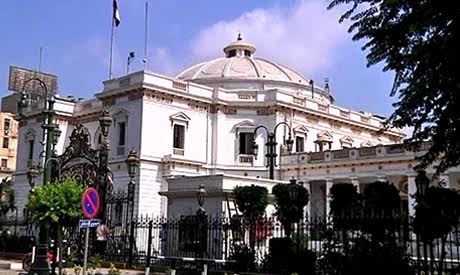Watani talks to Ayman Nasri, head of the Ecumenical Alliance for Human Rights and Development which is among six international organisations monitoring Egypt’s parliamentary elections
The first round of Egypt’s parliamentary elections took place on 18 and 19 October, and the re-runs on 27 – 28 October. At a turnout of 26.6 per cent, seculars won an overwhelming majority of the seats. This was a far cry from the 62 per cent turnout in 2012 that brought in an Islamist majority parliament.
Analysts have been attempting to discover the reason behind the low turnout, but there has been near-unanimity that Egyptians only turn out to vote in huge numbers when they feel threatened or the choices are crucial. In 2012, the Islamist Muslim Brothers (MB) and Salafis rallied their supporters to the polls, as did the seculars; the latter, however, lost. When Egypt’s post-2011 Arab Spring Islamist experience proved a disastrous failure, Egyptians rid themselves of the Islamist rule in 2013 and overwhelmingly opted for a secular State. In landslide votes in 2014, they opted for a secular Constitution and President. The only remaining element to attain a fully-fledged secular State was parliament; parliamentary elections started on October 17 and will go on till end of November. This time round the MB decided to boycott the parliamentary elections, and it was very obvious the Salafis do not have the public support that could catapult them to parliament, so Egyptians felt reassured they would get a secular parliament. Hence the stay-at-home or stay-at-work preference many opted for. The current parliamentary elections saw a turnout a little above that for other parliamentary elections in Egypt’s history, apart from that for the 2012 Islamist parliament.
Few, minor violations were reported by election monitors. The Ecumenical Alliance for Human Rights and Development was among six international organisations that monitored the polling. Watani talked to Ayman Nasri, head of the Alliance.
Would you begin by telling us about the Ecumenical Alliance for Human Rights and Development?
Located in Geneva, the Ecumenical Alliance (EAHRD) is a Non-Governmental Organisation (NGO) that works according to the Swiss civil law (article no 60). The organisation possesses an advisory position by the Economic and Social Council of the United Nations. It is one of six other international organisations that are monitoring the voting process in Egypt’s current parliamentary elections.
How do you rate the performance of the Supreme Electoral Commission (SEC) throughout the first round of the elections?
I would first like to thank the SEC for the great effort it exerted to facilitate the balloting inside and outside Egypt. Except for a few minor problems, the balloting went very well.
I also thank the police and security men who secured the polling stations in an able, competent manner, and who showed the utmost respect and courtesy to international and local observers. That excellent security performance is the best answer to many in the international media and human rights organisations that claim the security situation in Egypt is poor, and that the lives of international observers are at risk.
How do you see the participation of Diaspora Egyptians in the elections?
The Egyptian Constitution gives Diaspora Egyptians the right to eight representatives in parliament. Even so, their turnout as reported by the SEC was very feeble. It was disproportionate to their numbers, despite the fact that the balloting went smoothly, with no irregularities or violations. The number of voters listed by the SEC amounts to 693,000 in 28 countries. Given that there are some 8 million Egyptians residing outside Egypt, the number of registered voters is shockingly low.
In your opinion, what are the reasons behind the unwillingness of Egyptians outside Egypt to vote?
I believe the issue warrants a comprehensive study. This should help the government of Egypt take measures to raise the political participation of Egyptians outside the country, especially in view of the facilities offered to make this participation accessible and the huge costs incurred by the State to conduct the polling outside Egypt.
What observations does the EAHRD have about the recent polling?
The EAHRD has issued a report which states that the elections saw a number of violations. Among these violations was the common breaching of the pre-polling ‘silence’, the period directly ahead of the elections when no electioneering is allowed. Another common violation involved political bribery, with candidates offering voters ‘bribes’ to vote for them. This was especially noted in Upper Egypt and rural areas, and was mostly practised by the powerful families and clans whose members contested the elections. Women turned out in large numbers there to vote for those candidates who had offered them bribes; some of these women knew nothing about the polling process in the first place and needed help with the voting. In many constituencies, it was obvious that voters refrained from voting because they were not well familiar with the electoral programmes of the candidates, while others were not convinced that those candidates could live up to the parliamentary role expected of them.
Many voters were unfamiliar with the balloting process where the electoral lists were concerned; they only understood the voting for individuals.
It is my opinion that the parties should have held public meetings and seminars to raise awareness among the voters. The media too should have helped raise awareness.
Is monitoring the elections done only to track violations?
No, our main goal is to relay to the international community the real picture of what is going on in the election process, whether negative or positive. This effectively blocks the way before negative claims by any international body attempting to give a false picture of Egypt as an undemocratic State that does not respect human rights.
Local Egyptian organisations would not alone be able to play such a role; international organisations are communication tools that carry credibility with the international community.
How do you see the low turnout of the first round?
The low turnout is a negative message to the world; it indicates the upcoming parliament might be a weak one. Parliamentary elections around the world usually see more than 50 per cent turnouts.
Do you think there may be a better turnout in the second round of the elections?
Possibly. This parliament will be shouldered with very significant legislative and supervisory roles.
Watani International
28 October 2015

















